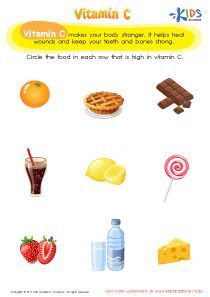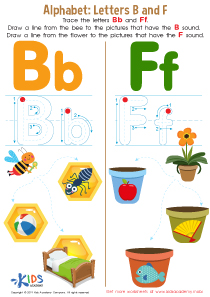Easy Matching and Sorting Quizzes for Ages 3-4
5 results
5 filtered results
Clear all filters5 filtered results
-
From - To
Introducing our Easy Matching and Sorting Quizzes, expertly designed for children aged 3-4. These interactive quizzes are a delightful way for your little ones to check their understanding and skills in a supportive environment. Tailored specifically to engage and educate preschoolers, our quizzes cover essential early learning concepts of matching and sorting. Through engaging visuals and intuitive feedback, children will not only enhance their cognitive abilities but will also boost their confidence in these foundational skills. Perfect for at-home learning or a classroom setting, our Easy Matching and Sorting Quizzes for Ages 3-4 are the ideal tool for your child's educational journey.
In the crucial early stages of learning, children aged 3-4 are not only discovering the world around them but are also developing foundational cognitive skills. Among the best ways to nurture these skills is through interactive learning methods. Easy matching and sorting activities, designed specifically for ages 3-4, stand out as powerful tools in this respect. These activities are more than just games; they are stepping stones in a child's educational journey, fostering a range of abilities from critical thinking to fine motor skills.
Easy matching and sorting for ages 3-4 are ingeniously simple yet profoundly impactful. By engaging in these activities, children learn to recognize similarities and differences, a fundamental aspect of cognitive development. This task, which might seem straightforward to adults, is a complex challenge for young learners, engaging multiple areas of their brain. The process of sorting objects or images into groups based on color, shape, or size, and matching pairs or sets, teaches children to observe, compare, and categorize — essential skills in both math and science.
Moreover, these activities are designed to be accessible and enjoyable. With vibrant colors, engaging themes, and user-friendly interfaces, easy matching and sorting games capture the imagination of children aged 3-4, turning learning into an adventure. This playful approach ensures that children are not only learning but are also developing a positive relationship with education, a foundational attitude that can benefit them throughout their lives.
One of the significant advantages of easy matching and sorting for ages 3-4 is the development of fine motor skills. As children select, drag, and drop items into their respective categories or pairs, they refine their hand-eye coordination and finger dexterity. These physical skills are crucial for writing, drawing, and performing daily tasks, showcasing how matching and sorting activities support holistic development.
In addition to cognitive and motor skills, matching and sorting activities for ages 3-4 also encourage independence and confidence. Children, through trial and error, learn problem-solving. They begin to understand that making mistakes is part of learning, fostering resilience. As they progress and master the tasks, the sense of achievement boosts their self-esteem, motivating them to embrace new challenges.
These activities are also adaptable, catering to a wide range of abilities and interests. Whether a child is fascinated by animals, vehicles, or fairy tales, there are matching and sorting games to capture their interest. This adaptability ensures that learning is personalized, increasing engagement and effectiveness.
Furthermore, easy matching and sorting activities for ages 3-4 offer a foundation in math and literacy skills. As children sort and match, they are introduced to concepts of quantity, sequence, and classification, laying the groundwork for numeracy. Simultaneously, by interacting with text labels and instructions, they are exposed to language, supporting early literacy.
In conclusion, easy matching and sorting activities for ages 3-4 are invaluable tools in early childhood education. By combining cognitive, motor, and emotional development, these interactive quizzes provide a well-rounded approach to learning. As children play, they are not only preparing for more advanced academic subjects but are also developing lifelong skills of observation, analysis, and resilience. In the formative years of 3-4, such activities are not just helpful but essential, paving the way for a lifetime of curiosity and learning.












